Sous-total: 10,90€
Interview with Sarah Roper – Solo Oboe of the Real Orquesta Sinfónica de Sevilla (Spain).
We are very excited to present you the interview with Sarah Roper, solo Oboe of the Real Orquesta Sinfónica de Sevilla, Spain, since 1996. She is a founding member of the Asociación de Doble Caña de Sevilla (Seville Double Reed Society), holds the International Relations post in AFOES (Spanish Double Reed Society) and since 2018 serves as First Vice President of the IDRS. Sarah Roper is Conference Coordinator of IDRS 2018 (Granada, Spain) and an Associate of the Royal Academy of Music. She plays a Howarth of London LXV oboe.
From EG-REEDS we want to thank Sarah for her time and the opportunity to interview her.
How did you begin with music and the oboe? Were there other musicians in your family?
I began playing the recorder at primary school at the age of 6 and soon after my parents arranged piano lessons for me. There were no professional musicians in my family, although music has always been very present at home. I joined a local youth orchestra, playing the 1st oboe part with the recorder (Beethoven Symphony nº 1 was the first orchestral piece I played, but the 1st oboe part on the recorder ;-)) and when I was 10 years old it seemed natural to progress to the oboe: A veterinary colleague of my father let me try out an old oboe from her family and I was able to make a sound straight away. I especially liked the idea of the challenge of learning an instrument that was not very popular and described as “difficult” to learn by my music friends.
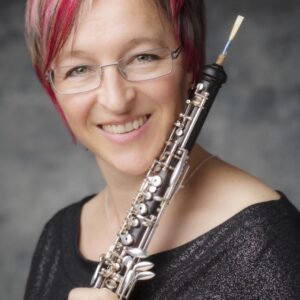
When did you decide that you wanted to become a professional oboist?
I knew straight away, at the age of 10, as soon as I started to play the oboe, that my dream was to become a professional oboist. I was determined to make this dream come true and when I went to study in London and later in Germany it gradually became more and more of a reality. I was always very ambitious and hard working and this obviously helped me to achieve my dream.
Which teacher has marked your career the most?
It is difficult to pick out just one teacher: All my teachers have left their mark on my style of playing, studying technique and consequently my career:
I was very lucky to start learning the oboe with an inspiring oboe teacher in Gloucestershire, Peter Bassett, who played duets with me and taught me to listen to the sound of the instrument. Sonia Wrangham at Chetham’s School of Music in Manchester introduced me to a wide range of repertoire and discipline into my studies. She also made sure that I could make my own reeds, and play all my scales before I went to London at the age of 18 ;-). Under the guidance of George Caird and Celia Nicklin at the Royal Academy of Music I learnt a vast amount of orchestral repertoire and was encouraged to work hard on basic technique and to consider to study abroad, which led me to study two years in the Staatliche Hochschule für Musik, Karlsruhe in Germany with Thomas Indermühle.
Thomas had a great impact on me as a teacher, not just because of who he is, but also because I was more mature and free to focus totally on my oboe studies during my time in Karlsruhe. He taught me much about the oboe technique, on a more subtle, profound level than I had learnt before. I would spend hours after one lesson going over what he had said to me, practising one particular exercise that he given me to experiment with. His highly acclaimed international oboe class was full of oboists from different countries and we all learnt from each other, supported and inspired each other. I respect him greatly as he never tried to change my style of playing or encourage me to play on a particular make of instrument. He guided me and let me grow into my own self as a person and as an oboist which was exactly what I needed at this time in my life.
I was fortunate enough to have extra lessons with some very inspiring teachers who left a mark on my studies after just one lesson or masterclass ( Emanuel Abbühl, Hans Becker, Maurice Bourgue, Nicholas Daniel, Stefan Schilli, Jaques Tyse) and I still remember many comments and exercises that each of them gave me.
What type of oboe do you play and why did you choose it?
I play a Howarth of London oboe and I chose it (or it chose me) for various reasons – its beautiful centred sound which enables the player to produce different colours and a personal tone, very good stable intonation and a strong key mechanism. The personal and individual service provided by Howarths also makes a difference for me. At the moment I have a new LXV model with an extra synthetic top joint which is really practical for playing outside or in places with changes of temperature or air currents (for example in the opera pit). I carry the oboe with both top joints always so that I have the option of either – it is like having two oboes in one which is a real luxury.

If you had to highlight a work from the oboe repertoire, what would it be and why?
I have to name a few: For me, Mozart´s Oboe Quartet is a masterpiece and Bach wrote some incredible solos for oboe in his cantatas. The Strauss Oboe Concerto should be highlighted because of its technical and marathon-like challenges for the oboist. Recently composed works important for me are: Six études pour hautbois by Gilles Silvestrini and Legacy, a new beautiful and exciting oboe concerto written by Óscar Navarro, dedicated to Ramón Ortega.
How did you start working in orchestras?
I began playing in professional orchestras in the UK and Germany whilst I was studying, playing as a freelance guest or on trials for positions and then when I finished studying in Karlsruhe I was contracted by the Orquesta Ciudad de Granada as Assistant Solo Oboe and Cor Anglais player, where I later won the job and worked as a member of the orchestra for a year. I have very fond memories of my time in Granada, playing with Eduardo Martínez, Solo Oboe of the OCG. I learnt a lot from my colleagues during this time and made some very good friends. In 1996 I won a temporary contract, as a substitute for Solo Oboe in the ROSS, which ended up resulting in a 3 year contract, after which I won an international audition for the same job in 1999.
How is it working in the Royal Symphony Orchestra of Seville?
I really enjoy my job as Solo Oboe in the ROSS and feel extremely lucky to have such easy going and professional colleagues in the oboe and woodwind section and in the orchestra in general. The oboe section consists of two British women (Sarah Bishop – Cor Anglais) and two Valencian men (José Manuel González Monteagudo – Solo Oboe and Héctor Herrero – 2nd Oboe) and we have a good personal and working relationship which makes a real difference when making music together. I am very fortunate to be able to share the Solo Oboe position with José Manuel as we are both flexible enough to enable each other to pursue activities outside the orchestra which is incredibly important for our personal development and maintaining a high level of playing.
With what orchestral repertoire do you identify yourself and like the most?
I particularly love playing Brahms, Mahler and Strauss in the orchestra.
Which conductor has made the most impression on you?
Two experiences from my student years in London: When I played Symphonie Fantastique by Berlioz at the RAM with the conductor Sir Colin Davis and also when I attended a concert conducted by Leonard Bernstein. During both performances the atmosphere was electric and they stay very vivid in my mind…During the past few years the young conductor Maxim Emelyanychev has worked with the ROSS (and has recently been appointed as the New Principal Conductor of the Scottish Chamber Orchestra). He is incredibly inspiring and totally lives with music in the present moment.
Within your musical life you are very active with chamber music. How was the recording with the Cuarteto Emispherio (oboe and string trio)? Why did you choose that combination and repertoire?
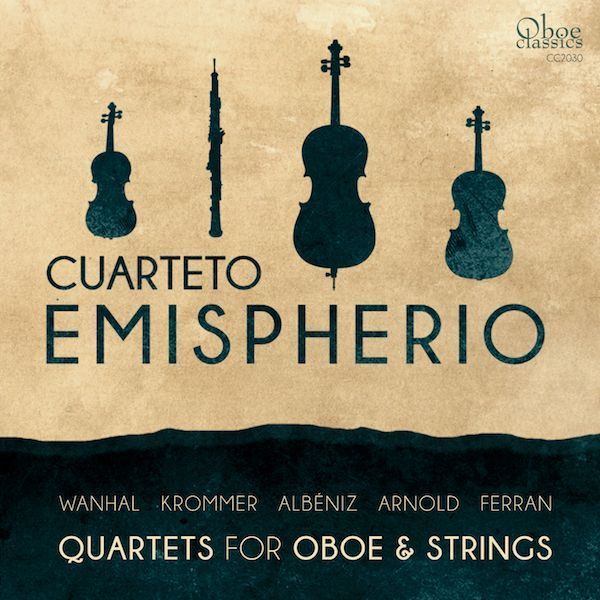 I chose this combination, oboe and string trio, firstly because I absolutely love playing with strings (the sound of solo oboe works so well with them) and I wanted to record something new, and Spanish (such as Horus by Ferrer Ferran and our own Albéniz arrangements) and less well known pieces such as the Malcolm Arnold and Wanhal Quartets. It also worked well for us as the Cuarteto Emispherio was celebrating our 10th anniversary of playing together in 2015. We are a very active chamber music group and in the past we were often asked by public at our performances if we had a professional recording to sell.
I chose this combination, oboe and string trio, firstly because I absolutely love playing with strings (the sound of solo oboe works so well with them) and I wanted to record something new, and Spanish (such as Horus by Ferrer Ferran and our own Albéniz arrangements) and less well known pieces such as the Malcolm Arnold and Wanhal Quartets. It also worked well for us as the Cuarteto Emispherio was celebrating our 10th anniversary of playing together in 2015. We are a very active chamber music group and in the past we were often asked by public at our performances if we had a professional recording to sell.
We made the recording with Jordi Gil, at Sputnik Studios in Seville. The easiest part of the recording was the playing! We spent a whole weekend recording the works and then spent almost the same amount of time listening and deciding on the tracks that we were going to use for the CD. The hardest part of making this CD was preparing the programme notes and working on the design for the sleeve and programme book. I had no idea that it would take us so long to prepare the notes (written in English and Spanish) and it was a real challenge, however it was a very rewarding project in every aspect and we are pleased with the result: http://www.oboeclassics.com/Cuarteto.htm
During this project the I was very fortunate to start up a special relationship with the Malcolm Arnold Trust, who generously helped us financially with the making of the CD. As a consequence of this relationship I have since written an article about the Fantasy for Oboe by Malcolm Arnold for Maestro (Journal of the Malcolm Arnold Society) and consequently recorded the piece in 2017 (also at Sputnik Studios) which is now available as a single digital track with Oboe Classics: http://www.oboeclassics.com/digital/. The article for Maestro, was later published in Double Reed News and can be found on the Oboe Classics webpage: www.oboeclassics.com/digital/Arnold_Fantasy_details.pdf
How do you see the evolution of the oboe world in Spain since you arrived in in 1995? In what way do you think that associations such as the International Double Reed Society (IDRS) or the Asociación de Fagotistas y Oboístas de España (AFOES) and all the local associations, that are being founded, are influencing the double reed world?
Since I first arrived in Seville in 1995, the music conservatoires for ages 12 -18 approx., in Andalucia, have acquired many more oboe teachers and consequently many more young oboe students than there were before. This has made an incredible difference on the double reed community in my environment during the past twenty years or so. I have seen how brilliant young talented oboists in Andalucia have advanced from the OJA (Andalucia Youth Orchestra) to pursuing their studies abroad and becoming successful professionals. However, on the other hand, I also see so many good players unable to win a job in Spain now, due to the tough competition and lack of work available.
For sure, associations such as IDRS, AFOES and other local associations are influencing the double reed world a great deal in a positive way. Double reed associations provide a place for anyone who would like to share knowledge and experiences about a double reed instrument. The wonderful thing about these associations is how professionals and amateurs all mix to enjoy a common love and interest. AFOES has made a great impact on Spain – it has bridged gaps between professionals and also between professionals and students within such a large country. Spanish students now have incredible opportunities at AFOES conferences, where it is possible to attend masterclasses, competitions, hear international soloists and visit top international exhibitors. These are experiences that were impossible ten years ago on such a large and diverse scale.
AFOES is only 7 years old, but IDRS is nearly 50 years old! We are grateful that we have been able to build our Spanish society, based on experiences and achievements made by older societies such as IDRS or the British Double Reed Society, but at the same time, by adding our own new ideas and keeping our own Spanish personality and identity. Of course none of this would be possible without the passion and tireless hours of voluntary work donated by the Executive Committee Society members and organisers of all associations.
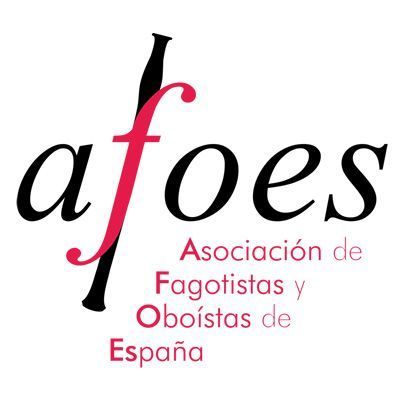
How and why was AFOES born?
AFOES was born out of a necessity to be able to share knowledge and to bridge gaps, as I have already explained. In 2010 in Seville, a few double reed teachers, members of the Town Band and of the ROSS, founded the Asociación de Doble Caña de Sevilla, exactly for the same reason, but on a smaller scale within our own city. ADCS has made an incredible difference for all oboists and bassoonists in Seville and its surrounding areas, socially and professionally, I would say. Soon after, in 2011, after a few telephone calls, e-mails and get-togethers, AFOES was founded by colleagues in Andalucia, headed by José Antonio Masmano y Ximo Osca in Granada. During our first meeting we discussed what had been learnt from founding ADCS and whether a society for Andalucia or Spain should be founded. We came to the conclusion that we should take the plunge and found the Spanish Double Reed Society, AFOES. I am very happy that we did take the plunge – it has been hard work but well worth it. If you would like to know more, the early history of both ADCS and AFOES is documented in the first AFOES magazine (Nº.1, 2012).
AFOES will be organizing the next IDRS conference in Granada (28th August -1st September, 2018). Do you think there will be a “before and after” in the double reed world in Spain?
Definitely. The “after” has already begun and it began when AFOES launched the famous viral IDRS 2018 promotional video during the IDRS 2017 Conference in June, in Appleton, USA. AFOES has gained much respect from Spanish colleagues but also from international colleagues (professors, artists, exhibitors and vendors). We, as the conference hosts, never ever imagined to have more than 1,200 participants registered for the conference three months before the event and this is what has happened. I am convinced that IDRS 2018 in Granada, hosted by AFOES, will be remembered by both IDRS and AFOES as an historical event, for many reasons, and this will obviously will have an impact on how AFOES will be seen inside and outside of Spain in the future.
Do you have a routine when doing reeds?
Yes, I still scrape my reeds by hand. I do everything else with machines ;-). I make them slowly and in stages whenever possible. I like to always have 3- 4 blanks tied on and another 3 – 4 reeds half scraped and ready to be finished off so that I always have new ones on the way and ready to blow in. It is important to not get stuck with certain reeds and get too used to old, easy reeds that could die at any moment (those ones can be kept in the box for emergencies or special occasions).
What advice would you give to oboe students?
If a student really wants to become a professional oboist they need first of all to feel very passionate about playing music and the oboe. It is necessary to be ambitious, determined to reach their goal and to also have a level head, in order to cope with reeds and any stress. It is so important to study and work hard (when they are not yet working professionally and have time) and to stay open minded. Students should not forget basic technical exercises, like long notes and scales, and learn to make reeds regularly (by hand and machine) and listen to many different styles of oboe playing and all types of classical repertoire, including opera.
Oboists (and all musicians) need to look after themselves physically – to be aware of their posture and of any unnecessary tensions that may arise. It is essential to practise stretching exercises and to reserve some time for sport or classes like Pilates or Yoga, even when they are young.
Apart from studying with their teacher it is also very beneficial to take one-off classes with other professors (for example a private class or summer course). We should push ourselves to take part in competitions and masterclasses, planning future projects and never staying static. I suggest to keep a diary for practice and projects in order to make sure to have a good practice structure for daily sessions. In the end, we, ourselves, are the best teacher we can ever have.
What are your future projects?
Well, this summer I will be teaching in the Curso de Interpretación Musical Villa de Montefrío in Montefrío, Granada, 31st July – 4th August and then I will be participating in the 47th IDRS Annual Conference, 28th August – 1st September in Granada (www.idrs2018.org) as part of the hosting team (AFOES) and also as a performer. In September I will be performing a duo concert “Diálogos” with guitarist, María Esther Guzmán in Alcalá de Guadaira (https://www.juntadeandalucia.es/cultura/enredate/portal/espectaculo.html?id=5660) and in October will be taking part as professor and soloist in the 2º Brazil Double Reed Society (ABPD) Conference in Sao Paulo (https://www.abpduplas.com/2o-encontro-internacional). With the Cuarteto Emispherio we are in the process of preparing new repertoire and projects for the future and of course the ROSS 2018-2019 season will be taking up most of my time (http://www.rossevilla.es/programacion/calendario.html)

 English
English Español
Español Italiano
Italiano Deutsch
Deutsch Português
Português 日本語
日本語 简体中文
简体中文 한국어
한국어 Русский
Русский
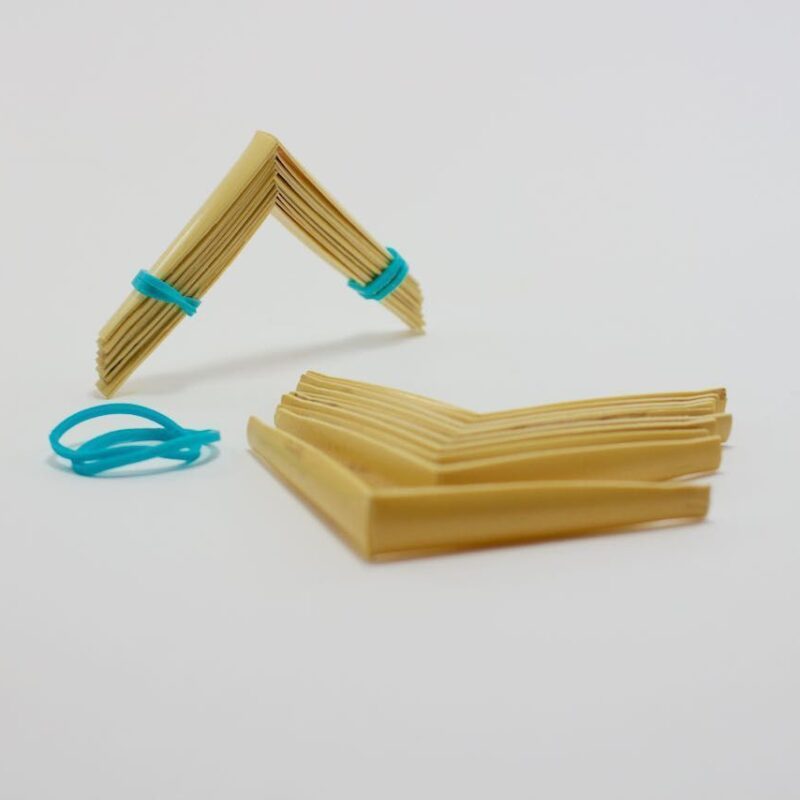 Roseaux taillés hautbois EG-REEDS - pour étudiants
Roseaux taillés hautbois EG-REEDS - pour étudiants 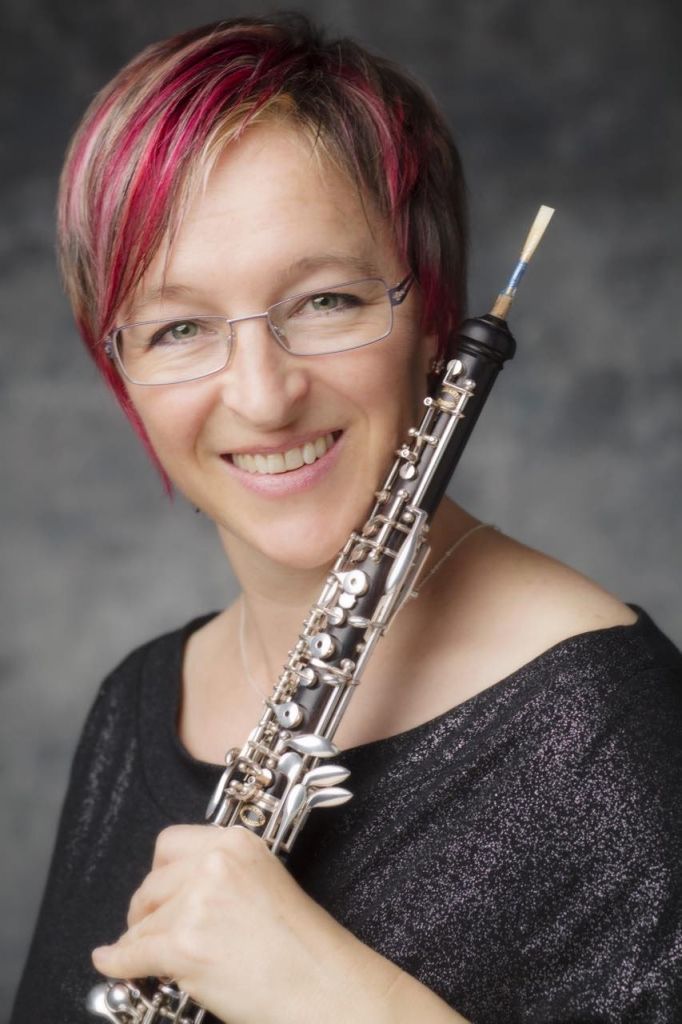
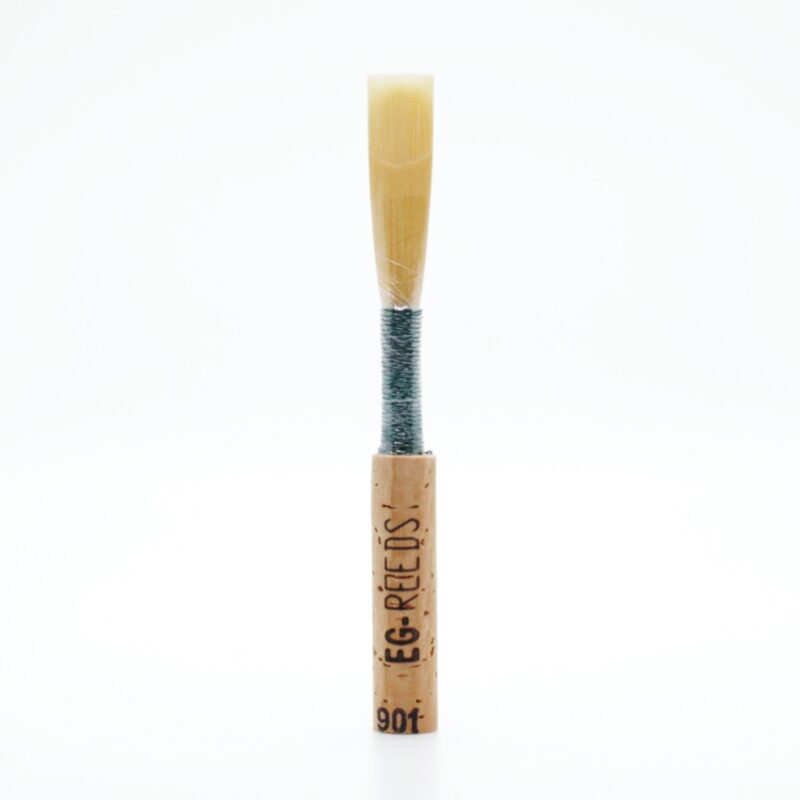

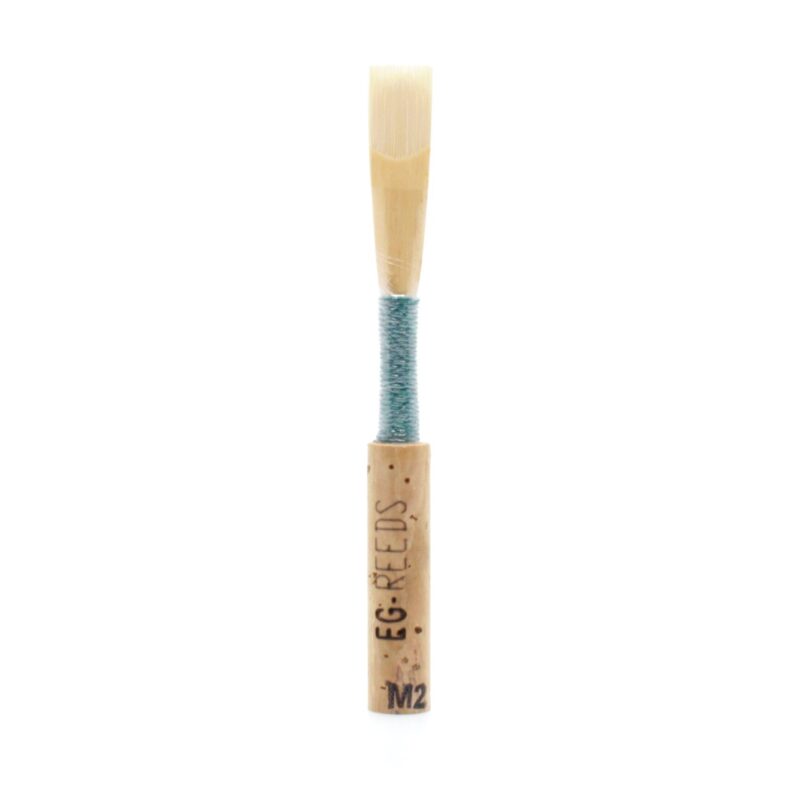
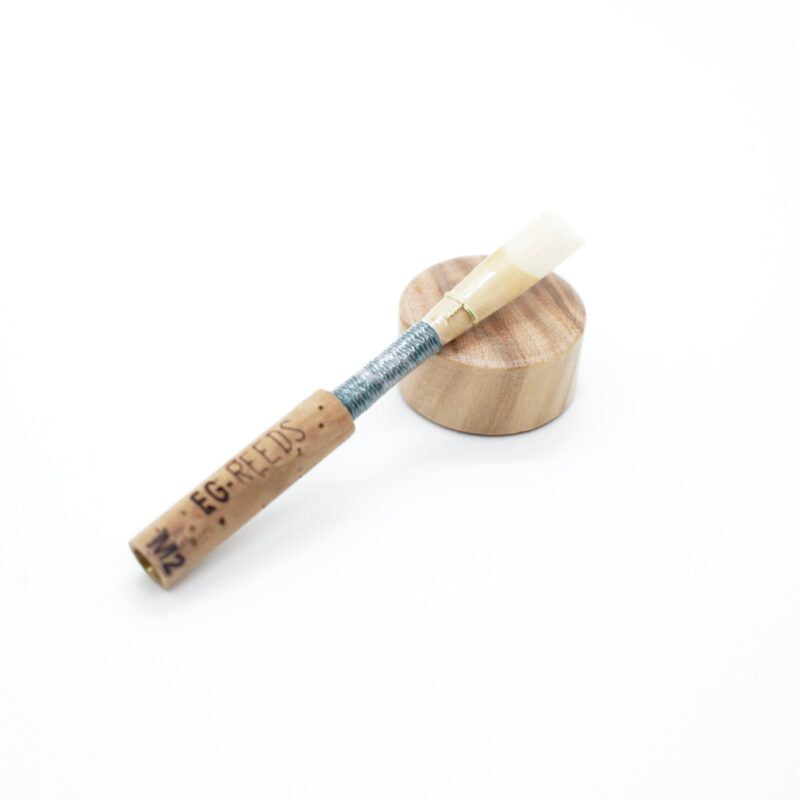

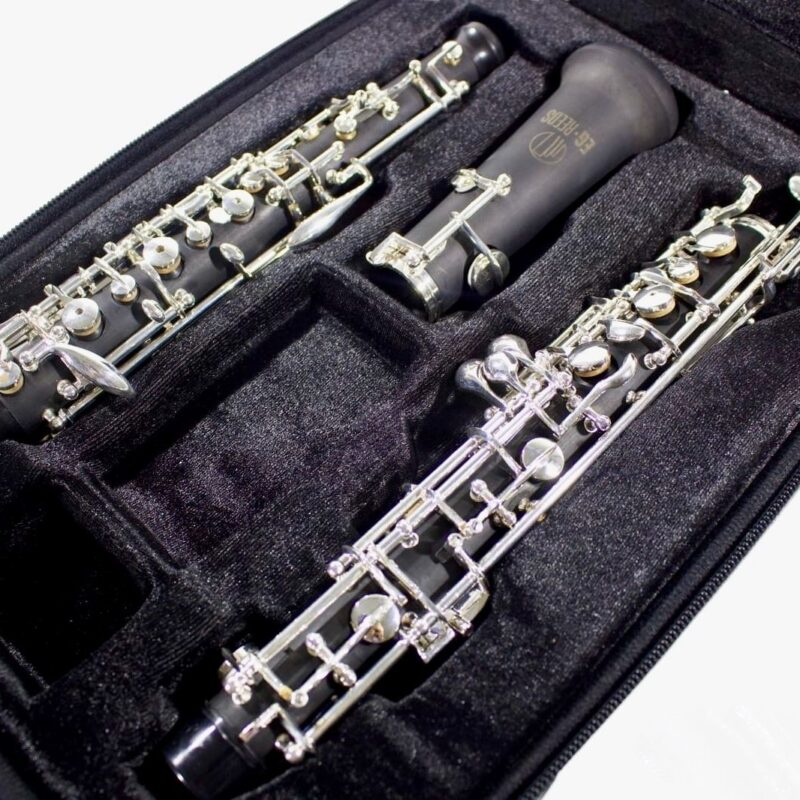

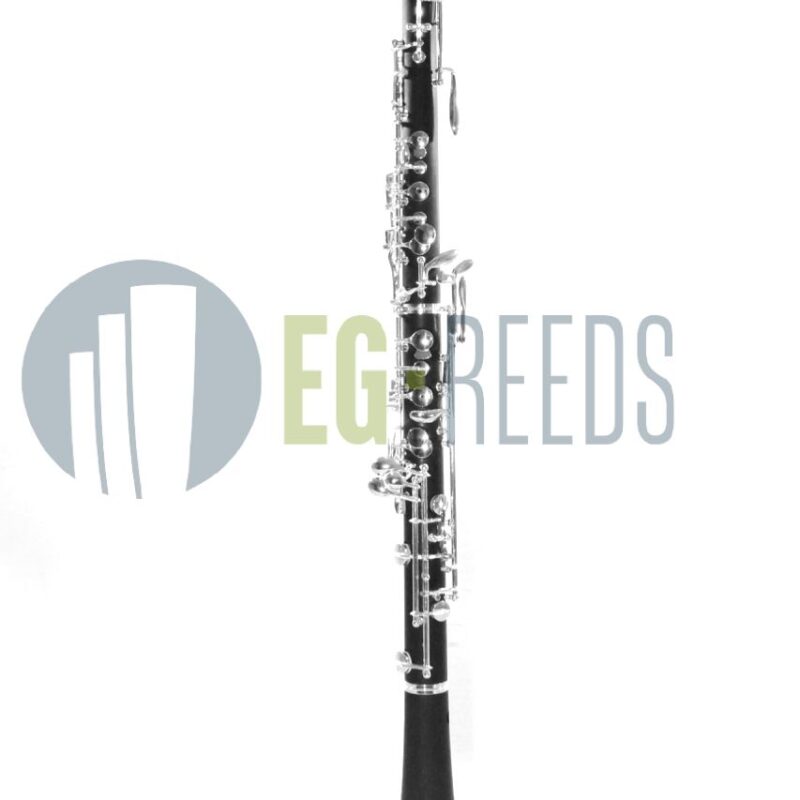
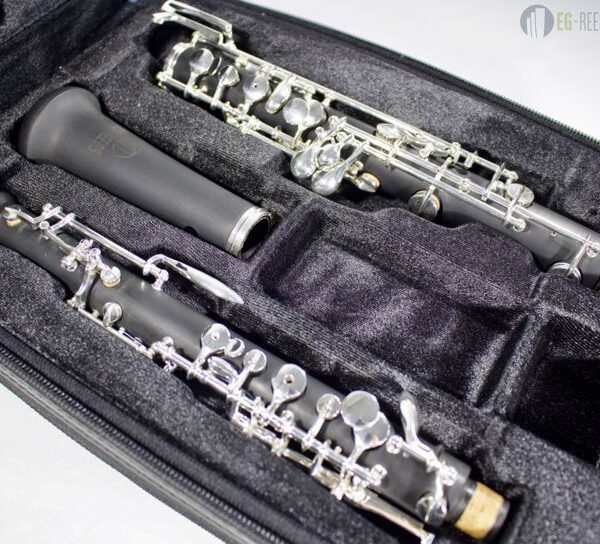
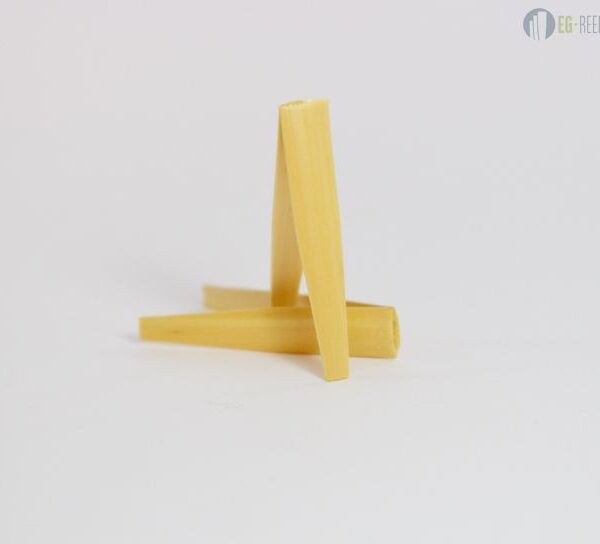
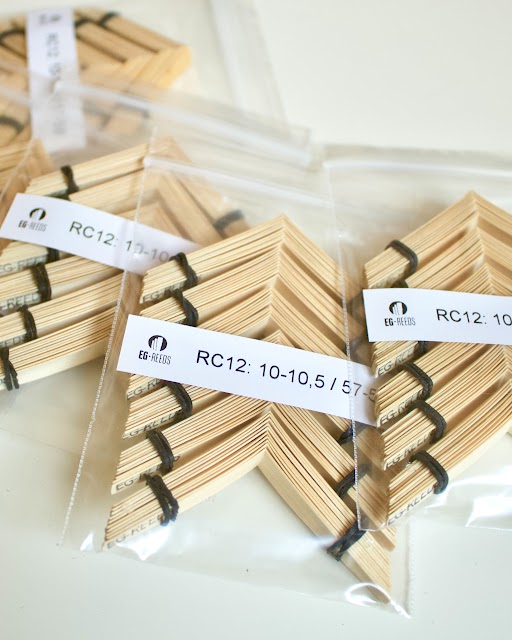


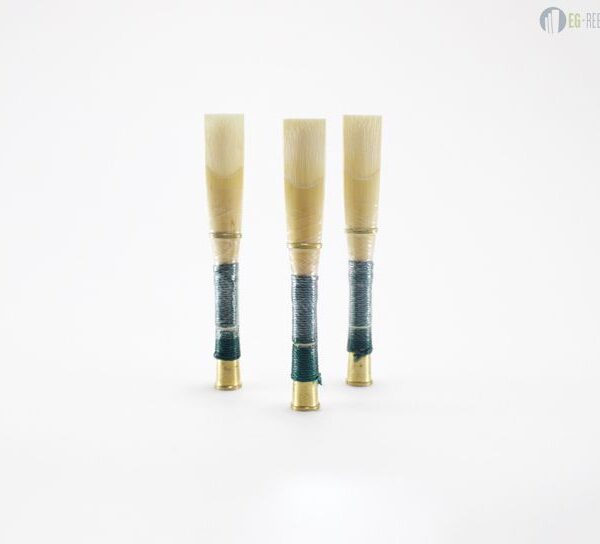
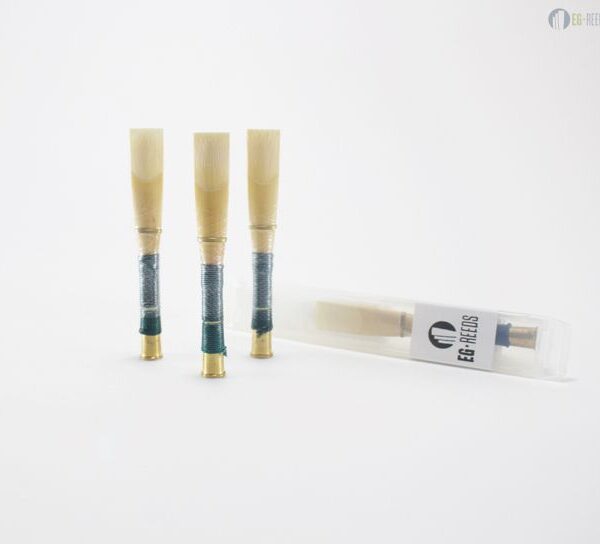


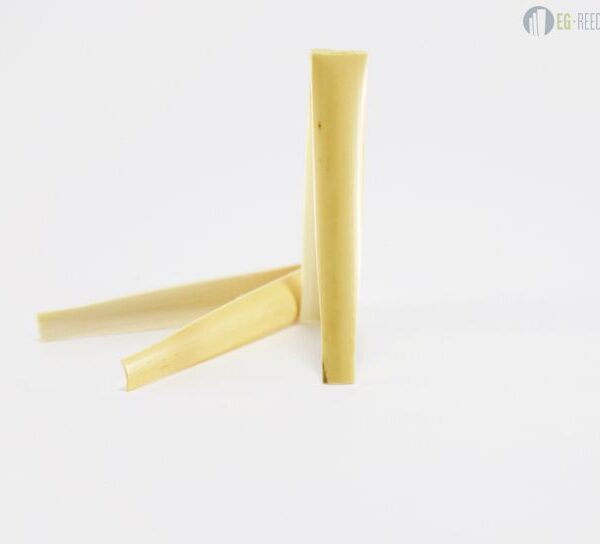


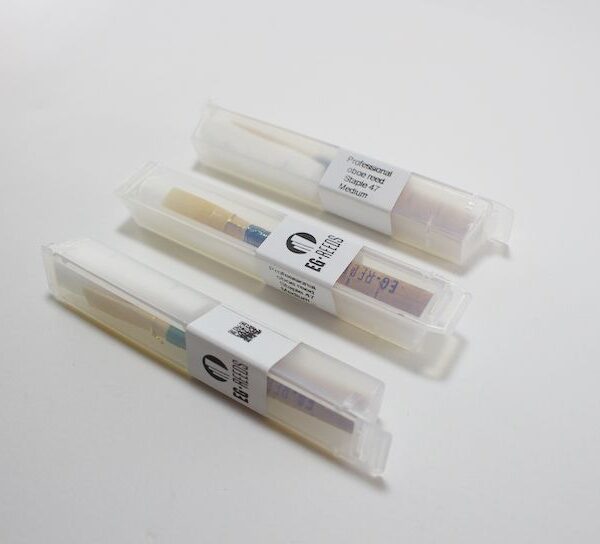

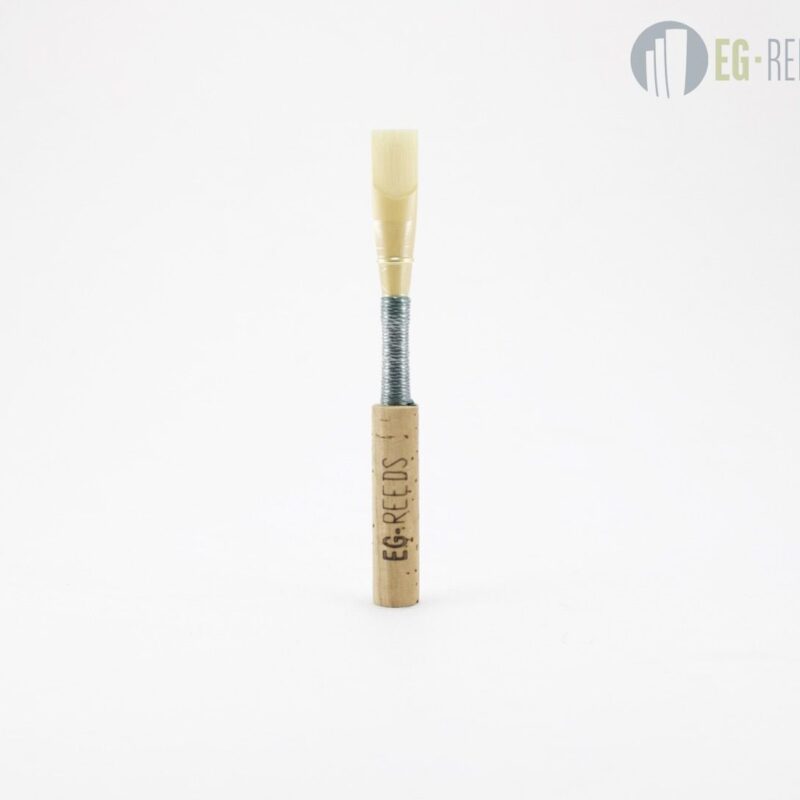
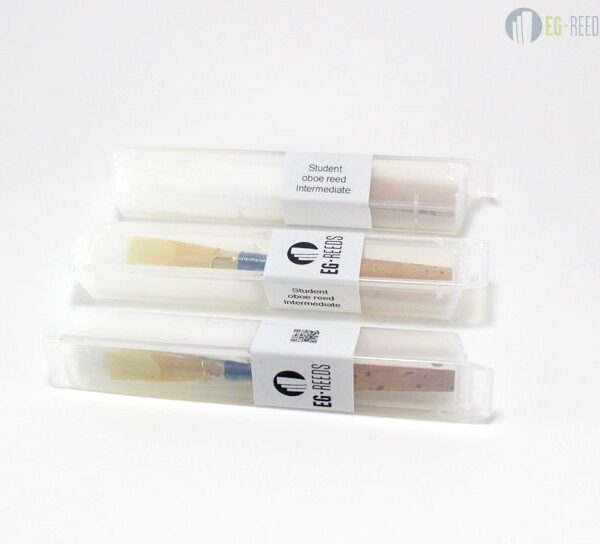
Anche hautbois Pro 901
Anche hautbois Pro M2
Hautbois intermédiaire EG-REEDS
Anche hautbois Mayer
Hautbois étudiant débutant EG-REEDS
Roseaux taillés hautbois EG-REEDS
Anche hautbois étudiant (débutant) EG-REEDS
Anche cor anglais Pro EG-REEDS
Changements dans nos options de livraison à partir du 1er janvier 2026
François Leleux
Nov
Maurice Bourgue
Mar
Le hautbois dans la musique de film
Mar
Albrecht Mayer
Fév
Anches de hautbois : l’anche idéale pour chaque étape
Jan
Comment acheter le meilleur hautbois pour les étudiants?
Jan
Heinz Holliger
Jan